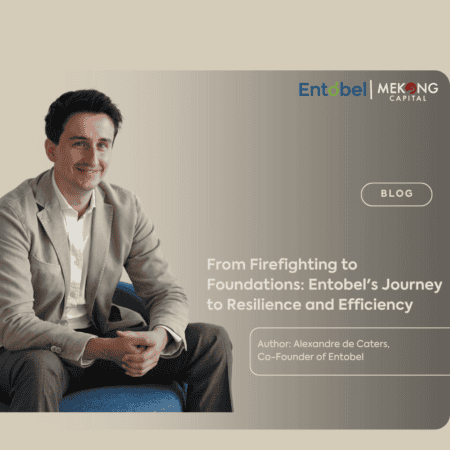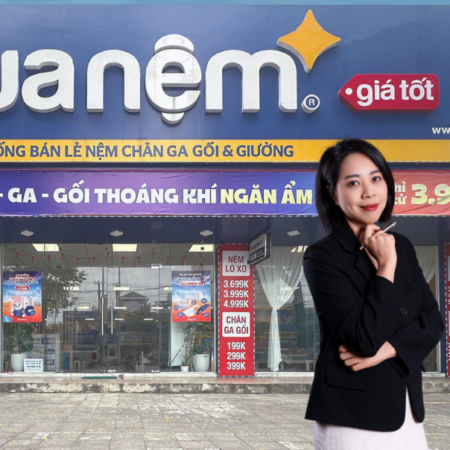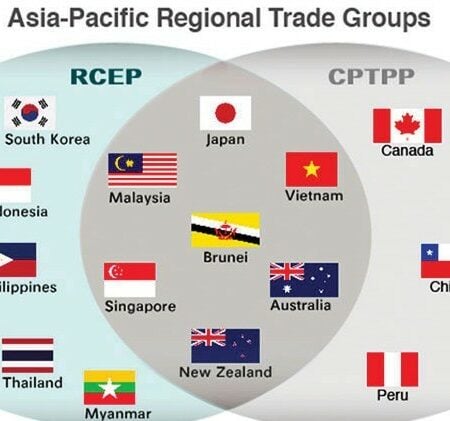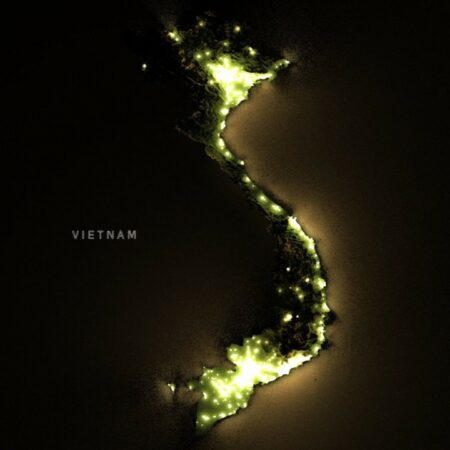
What makes a workplace truly worth spending many of our years?
Author: Mia Vo, Head of Communications, Mekong Capital
January 20, 2024
—
Throughout my career life until now, I have worked for six different companies and have also run three start-ups of my own. All these organizations had different structures, business models, and cultures.
However, there were certain places where I really enjoyed working, while at others, I dreaded the time being in the office. As someone who is fascinated by corporate cultures and effective management, I have been reflecting on the factors that contribute to employee satisfaction in the workplace. Was it the sense of belonging? Was it the benefits? Or was it the sense of fulfillment when we can see our contributions valuable to something bigger and more meaningful? Was it all of the above?
What makes a workplace truly worth spending many of our years at?
What would keep us happy and engaged in the workplace?

Mia Vo, Mekong Capital
Initially, like many others, I believed that it was the pay and benefits that brought me satisfaction. After all, who could resist a company offering a high salary and benefits? But as time went on, I came to realize that the company which used to pay me the highest was actually one of the places where I had the shortest tenure.
I was unhappy in that environment. Interestingly, I held a high position in the company, I was respected by my team members, and I was highly valued by the Board. But I couldn’t find a sense of fulfillment in the work I was doing or the target numbers I was expected to meet. And that made me feel so ineffective at work.
So it was surely not the pay that kept me up on my feet and fulfilled at a workplace, even though it’s an important factor.
Then, one day, I joined Mekong Capital. As I ventured into this new world, I learned about the culture and how things operate here. Initially, I was surprised by the high sets of goals and standards of work here. Another surprise was that everyone in the company was so result-oriented, coupled with a strong sense of connectivity in communication. There was a positive and contagious vibe permeating the atmosphere. Mekong Capital intrigued me greatly.
“In Mekong, we always play a breakthrough game,” my mentor said to me during my early days at the company.
In the first two months, I had doubts about fitting in here. I struggled with handling rejected meetings, holding people accountable, and the discomfort of receiving ‘no’ as answers to my requests. It was frustrating, but I persisted. My mentor’s words, “We play a breakthrough game,” kept resonating in my mind. I never left a workplace because it was challenging; I only left when I felt disconnected from it.
Later, I realized that those “no” answers were simply because I didn’t express my requests or invitations for meetings effectively and convincingly enough. My invitations before often contained words like “discuss” without a specific intended outcome. And in Mekong, effective meetings mean they end with the intended outcomes achieved.

Another aspect of Mekong that fascinated me from the beginning was its mentor-mentee structure. In addition to having a task manager, each of us is assigned a mentor who provides support, coaching, and guidance throughout our time at Mekong, helping us reach our highest potential for growth.
Surprisingly, as time went on, I found myself adapting and feeling happy and fulfilled every day at Mekong. Before, I couldn’t quite pinpoint what’s been keeping me on my feet here. I kept asking myself, “So what was it that was making me happy and motivated here?” Was it my gut feeling? The people I work with? Or the nature of the work I do?
Until one time, I came across an amazing book called “Why Motivating People Doesn’t Work… and What Does” by Susan Fowler. I finally found my answers there. Let me share more with you.
According to Susan Fowler, motivating people through incentives such as high pay, commissions, and benefits is akin to giving pigeon pellets to make them do what we want, but not necessarily what they want. Fowler refers to this as the Pecking Pigeon Paradigm. While this approach is commonly used by many companies because it produces results, people are still doing things primarily by the desire to receive rewards. However, thousands of studies have consistently shown the same result: the only correlation between performance and incentives is a negative one. The use of external rewards has a detrimental impact on the motivation, enthusiasm, and overall well-being of individuals, hindering their ability to reach goals, strive for excellence, and sustain effort.
So, if motivating people through incentives does not work, then what does? As Fowler said, people are already always motivated; what matters is the quality of their motivation. The answer is that at the workplace, we all need to fulfill three of our psychological needs: choice, connection, and competence.
Let me link them to my experience at Mekong Capital.
Choice: At Mekong, I have the autonomy that I want. I am encouraged to design my own KPIs as long as they align with the company’s vision. Every project and new responsibility is an invitation for me to decide whether I want to take it or not, as well as whether I want to take ownership of it. If I choose to accept a project, I am fully committed to it because it is my choice. With that sense of choice fulfilled, I’m even willing to take on more projects voluntarily, without being forced to.
Connection: Mekong Capital strongly emphasizes personal purposes. The company aims to align the purposes of every member with its vision and align goals and actions with meaningful values, to contribute to something greater than ourselves. This is the first workplace where I can connect my passion for words and storytelling with something meaningful and impactful. Here, I have the opportunity to produce stories of successful investment cases and valuable lessons learned, validating the implementation of the Vision Driven Investing framework. This framework serves as a guiding light for many Vietnamese companies that have been invested by Mekong Capital.
Competence: Our need is to feel effective in everyday situations and experience a sense of growth and fulfillment. I personally experience growth every day at Mekong Capital, and eager to take the lead on more new scopes. There are always new things to learn, and the people at Mekong are constantly exploring and experimenting with innovative approaches for achieving breakthrough results. Even if someone wishes to remain stagnant in this company, it is difficult to do so because everyone is continuously progressing and developing.
So, are your senses of choice, connection, and competence fulfilled at your workplace? If the answer is yes, it’s the place that worth spending your years!
Click below to subscribe to Mekong Capital’s quarterly newsletter.
Mekong Capital makes investments in consumer-driven businesses and adds substantial value to those companies based on its proven framework called Vision Driven Investing. Our investee companies are typically among the fastest-growing companies in Vietnam’s consumer sectors.
In January 2022, Mekong Capital founder Chris Freund published Crab Hotpot, a story about a bunch of crabs who found themselves stuck in a boiling pot. The colorful cover of “Crab Hot Pot,” complete with expressive cartoon crustaceans, looks like a children’s tale at first glance. But as one continues reading, it becomes clear that the work has an important message about organizational transformation, leadership and focusing on a clear vision for the future.
The book is available on Tiki (Hard copy): bit.ly/38baF8a (Vietnamese) and Amazon: amzn.to/3yWunzG (English)






Leave a Reply